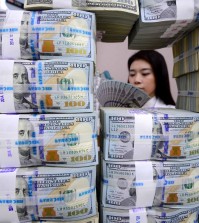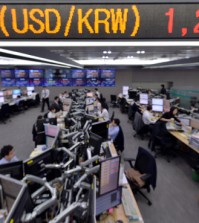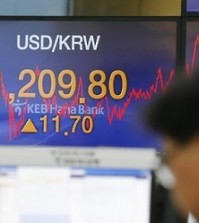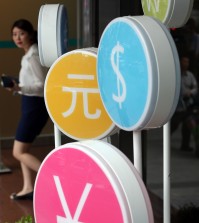- California Assembly OKs highest minimum wage in nation
- S. Korea unveils first graphic cigarette warnings
- US joins with South Korea, Japan in bid to deter North Korea
- LPGA golfer Chun In-gee finally back in action
- S. Korea won’t be top seed in final World Cup qualification round
- US men’s soccer misses 2nd straight Olympics
- US back on track in qualifying with 4-0 win over Guatemala
- High-intensity workout injuries spawn cottage industry
- CDC expands range of Zika mosquitoes into parts of Northeast
- Who knew? ‘The Walking Dead’ is helping families connect
Won gains most against dollar among major currencies
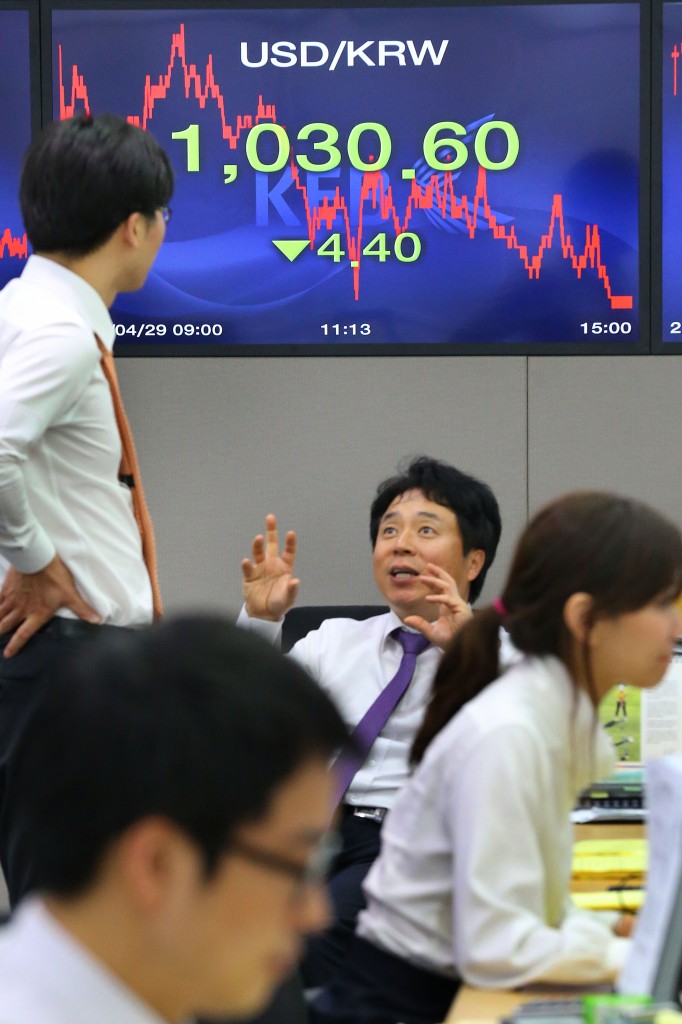
In April alone, the Korean currency strengthened 3.05 percent against the greenbacks, the biggest appreciation among the world’s 40 major currencies. (Yonhap)
(Yonhap) The South Korean won has recently advanced the most against the U.S. dollar among major currencies thanks to its continued current account surplus, market watchers said Tuesday.
In April alone, the Korean currency strengthened 3.05 percent against the greenback, the biggest appreciation among the world’s 40 major currencies, according to the watchers.
On Friday, the South Korean currency finished at 1,030.33 won to the dollar, the highest level in nearly six years.
The won’s recent appreciation against the greenback is attributable mainly to South Korea’s prolonged current account surplus, according to analysts.
South Korea’s current account surplus reached its highest mark in five months in March as exports of tech products, cars and chips gathered ground.
The surplus reached $7.35 billion in March, up from a revised $4.5 billion in February, according to the Bank of Korea (BOK). The current account is the broadest measure of cross-border trade.
The March data marked the largest surplus since $11.1 billion tallied in October 2013, and the 25th straight month of surplus, providing a buffer for Asia’s fourth-largest economy as the U.S. Federal Reserve tapers its quantitative easing.
With South Korea’s current account balance remaining in the black, global investment banks predict the Korean won to remain strong against the dollar for the time being, given Seoul’s current stance of allowing the won’s appreciation.
A strong won usually hurts South Korea’s exports, its main growth driver, by making them more expensive in overseas markets, but the foreign exchange authorities still believe the won’s recent appreciation has not had a negative impact on overseas shipments yet, they say.








